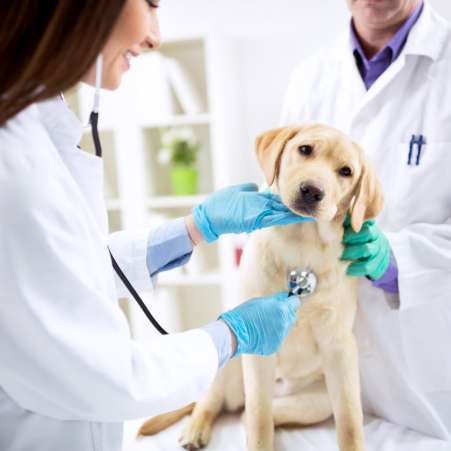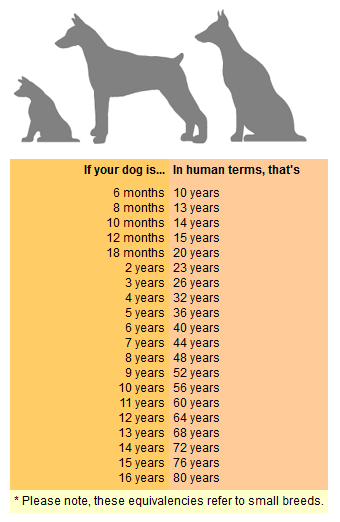Basic Health Check

Your puppy’s basic health check
Your new puppy should visit a veterinarian as soon as possible. The first visit will probably include:
- A thorough physical examination to determine his state of health.
- Check for external parasites (fleas, ticks, lice, ear mites).
- Check for internal parasites (tapeworm, roundworm, etc.), if you can bring a fresh stool sample for analysis. Blood tests may also be done.
- Initial vaccination and/or a discussion of the types of vaccinations your puppy needs and when they should be scheduled.
- Discussion about whether your puppy should be desexed (spayed or castrated) and when.
This first health check will give your veterinarian the information they need to advise you on your puppy’s immediate diet and care. Plus, it will give them a “knowledge base” from which, on subsequent checkups throughout your pup’s life, they can better evaluate, monitor and manage your pet’s health.


Common Problems
Obesity is a big health risk. An older dog is a less active dog, so adjustments to your pet’s diet to reduce caloric intake are imperative. This will relieve pressure on their joints as well as manage the risks of heart failure, kidney or liver disease, digestive problems and more. Other changes to their nutrition should include increasing fibre, fatty acids and vitamins while decreasing sodium, protein and fat.
Arthritis’ severity can range from slight stiffness to debilitation. An exercise program, also to maintain muscle tone and mass, can be adjusted to their condition. Anti-inflammatory medication can help relieve the pain. Your veterinarian will prescribe any necessary medication.
Intolerance to hot and cold temperatures occurs because your dog produces less of the hormones which regulate the body’s normal temperature. Move his bed closer to a heater and bring him indoors on cold days.
Tooth loss or decay not only makes it harder to chew but also increases the likelihood of nasty infections. Brushing and cleaning the teeth will keep these to a minimum.
Prostate enlargement or Mammary Gland Tumours is mostly diagnosed in uncastrated or unspayed dogs. Have the prostate or mammary glands examined at checkups.
Separation Anxiety presents itself when older dogs can’t cope with stress. Aggressive behaviour, noise phobia, increased barking and whining or restless sleep are the signs. Medication combined with behaviour modification techniques are key.
Skin or coat problems Ageing means the skin loses elasticity, making your pet more susceptible to injury while the coat’s hair thins and dulls over time. Grooming more often and fatty acid supplements are highly beneficial.
Canine Cognitive Dysfunction manifests itself in confusion, disorientation or decreased activity. Medication can help solve some of these issues
